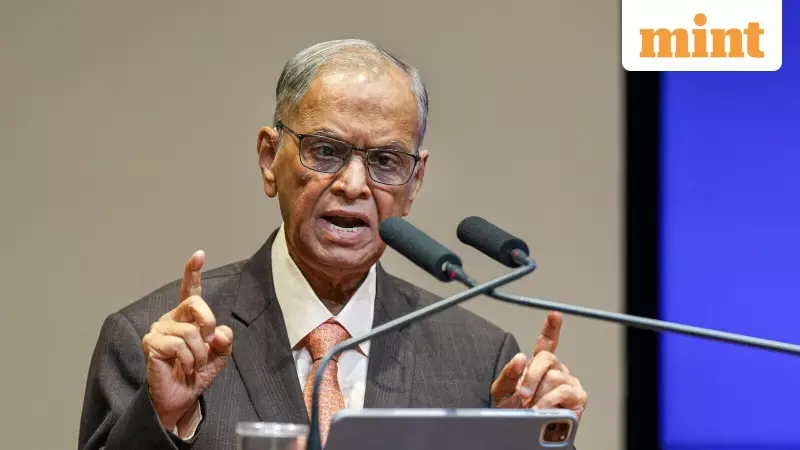
Infosys Co-Founder Rekindles Work Culture Debate
N R Narayana Murthy, the 79-year-old co-founder of Infosys, has once again stirred a nationwide conversation about work-life balance in India. During an interview with Republic TV's Arnab Goswami, Murthy strongly advocated for Indian employees to adopt a 72-hour work week, while highlighting Prime Minister Narendra Modi's alleged 100-hour work week as an exemplary model for young professionals to emulate.
The Controversial Interview Details
When questioned by Goswami about work-life balance, which the journalist referred to as a "Gen Z question," Murthy responded with a philosophical approach. "Let me start with what one of my friends, who was also one of India's very successful corporate leaders, said... that gentleman gave a brilliant answer. He said, 'Sir, first we should all get a life then we should worry about work life balance'," Murthy stated during the conversation.
The Infosys patriarch elaborated further, emphasizing national priorities over personal comfort. "The need of the country is to ensure that those of us who god has smiled upon should work hard, in a disciplined manner, work smart, and create opportunities for those people who still do not have any jobs so that they too can have a life. Then we can worry about work-life balance," he added, framing hard work as a national responsibility.
International Comparisons and Social Media Backlash
Murthy referenced China's notorious 9-9-6 work culture as a benchmark, explaining: "There is a saying in China, 9, 9, 6. You know what it means? 9 am to 9 pm, 6 days a week. And that is a 72-hour week." However, this comparison triggered immediate backlash across social media platforms.
X users expressed strong opposition to Murthy's suggestions, with one commenter highlighting European work culture: "There's a saying in Europe, 10, 5, 5. You know what it means - 10 am to 5 pm, 5 days a week. They go for walks, trekking, meet friends, and 'enjoy' life."
Another user pointed to systemic issues in the Indian work environment: "Quoting China's 9-9-6 as a benchmark sounds great on paper, but India doesn't even have the basic ecosystem for it, fair salaries, work life balance, mental health support, or productivity-focused culture. Harder hours won't fix deeper structural issues."
The criticism extended to personal attacks, with one user sarcastically remarking: "Spend 12 hours × 6 days for your company - so that we can get laid off one day without prior notice. Spend 12 hours × 6 days for your company - so that you can spend time in London with your grandkids."
Health Concerns and Historical Context
Health experts and concerned citizens warned about the potential dangers of such extreme work schedules. One social media user cautioned: "Business leaders in India are pushing for extra long work hours with calls for seventy hour weeks to match China's tech sector. But experts warn such extreme schedules cause burnout and health problems and young workers globally are rejecting this grind culture."
This isn't the first time Murthy has courted controversy with his views on work hours. In October 2023, his suggestion about a 70-hour work week faced similar online criticism. The Infosys co-founder later attempted to clarify his position in January, stating that such work schedules should be a personal choice rather than a mandate.
Murthy concluded his recent interview with a powerful statement about the relationship between performance and national progress: "Performance leads to recognition, recognition leads to respect, and respect leads to power. If India wants to power, it has to perform. No words will satisfy..."
The debate continues to rage across corporate boardrooms, social media platforms, and dinner tables nationwide, reflecting the ongoing tension between traditional work ethics and modern lifestyle expectations in rapidly evolving India.






